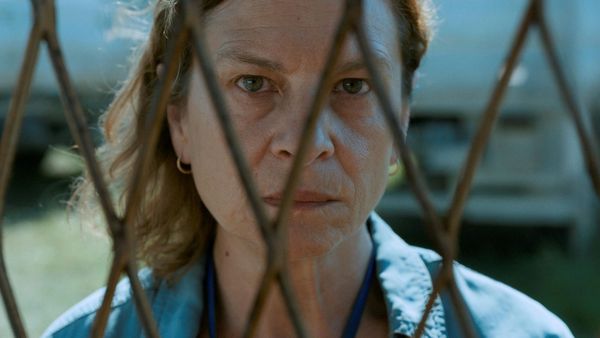Eye For Film >> Movies >> Quo Vadis, Aida (2020) Film Review
Quo Vadis, Aida
Reviewed by: Amber Wilkinson

In July 1995, 8372 Bosnian Muslims - mostly men and boys - lost their lives in the Srebrenica genocide, during the Bosnian War. The enormity and horror of that number is given a specific human face by writer/director Jasmila Zbanic, who considers the events leading up to it from the perspective of UN interpreter Aida Selmanagic (Jasna Djuricic), her headteacher husband Nihad (Izudin Bajrovic) and their two teenage sons Hamdija (Boris Ler) and Sejo (Dino Bajrovic).
Zbanic's hard-hitting drama - which has been selected by Bonsia and Herzegovina as their foreign language Oscar nomination - carries echoes of Hotel Rwanda as it explores the costly failures of the UN, although Zbanic achieves a profound sadness beneath its almost unbearable tension that Terry George's film never quite managed. Her measured approach ensures that we can't look away from the unfolding horror - something that she makes clear many at the time, both peacekeepers and non-Muslim residents, found all too easy to do.

Aida has a ringside seat as the situation in her hometown reaches crisis point, interpreting negotiations between the Dutch UN peacekeepers, led by the ineffectual Colonel Karremans (Johan Heldenbergh) and the Serbian forces. Srebrenica had been declared as a "safe zone" under the protection of the UN but the reluctance of the international forces to become involved is obvious from the off. As Srebrenica falls to the army led by General Ratko Mladic (Serbian heavy-hitter Boris Isakovic, who is married to Djuricic in real-life, and who lends the commander an air of disturbing smooth malevolence), the threatened populace seek protection at the UN camp - and chaos ensues.
Zbanic keeps us with Aida, Djuricic putting in finely calibrated performance, as the interpreter's anxiety levels climb by degrees, even as she tries to keep a lid on her panic. Although her pass gives her the run of the camp - and cinematographer Christine A Maier keeps us scurrying with her - her husband and sons are not so lucky, caught with many others outside the gates. Firstly, she has to get them inside, but that is only the beginning of the family's problems as the wider existential threat becomes increasingly apparent. The writer/director creates a full picture, not just through the visuals of the cramped space where the people are stuck or the sitting-duck vulnerabilities of those outside the building but through the evocation of smells - we quickly learn there are no toilets - and desperation over the lack of food and water, callously brought home when Mladic arrives with boxes of Toblerones.
The director also offers short interludes that give not just a sense of Aida's life before all this but also the uncanny way that life is, somehow continuing more or less as normal, for some living nearby. An epilogue further cements the need to look the past squarely in the face in order to fully accommodate a peaceful future.
Reviewed on: 26 Jan 2021
















